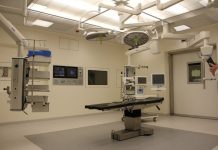Many of us have probably experienced frank incredulity or even derogatory comments about many eastern medicines (which is often synonymous with alternative and complementary treatments) from our doctors. The scoffing at alternative treatments was probably followed by warnings about how it’s all quackery and a waste of time and even that it is dangerous.
The life expectancy statistics of eastern civilizations, when compared with western figures themselves speak volumes about the ability of eastern therapies to keep people live longer healthful lives. The fact that these therapies have been seen to work for ages now is something else that should convince westerners.

It is a valid question, as to why western therapies are not more accepting of eastern therapies, particularly when both can be used in conjunction with each other to greater patient benefit.
More universities should offer courses in CAM
Yet there is a strong resistance of mainstream medical practitioners to having courses relating to alternative and eastern medicine in colleges and schools. Many however, are of the view that there should be more universities offering courses that teach complementary and alternative medicine.
Universities often do not offer courses in treatments that are considered alternative, because they are dismissed as being pseudo scientific. There is long standing evidence that these treatments work: if the evidence is only anecdotal, it does still exist.
It is also a fact that these are treatments that patients themselves ask for. And this being so, shouldn’t they have the option of asking their mainstream doctor to perform that treatment?
One of the accusations often leveled against eastern or alternative medicines is that they are not evidence based and that their efficacy is not proven. However the efficacy and application of disciplines such as acupuncture are well established, even studies have supported its use in treating chronic pain, stress, infertility and so on. At the very least the disciplines that are supported by studies should be offered.
CAM can control lifestyle diseases
It is undeniable that alternative therapies can control lifestyle diseases. Yoga and naturopathy for instance can help with a number of ailments such as obesity, diabetes, high blood pressure and spondylitis (inflammation of the vertebrae). Stress and hectic lifestyles can contribute to each of these diseases.
So perhaps there is a need for practitioners or conventional western therapies to be more open to alternative treatments and not to dismiss them out of hand. They may not want to replace the former with the latter, but at least both can be used to complement each other? Surely this would be in the interests of all concerned?










